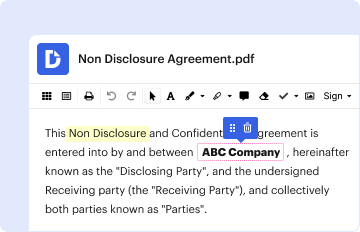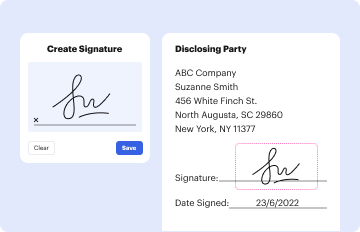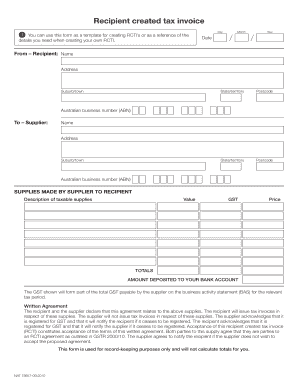Definition & Meaning
The TY10 200-02-Xi pmd - revenue delaware is a form specifically used for filing the Non-Resident Amended Delaware Personal Income Tax Return. It serves as a crucial document for taxpayers who need to make amendments to a previously filed personal income tax return. This form is applicable primarily for the tax year 2012 and caters specifically to non-residents who have income sources in the state of Delaware.
- Purpose: The form is designed to correct errors or omissions on initial tax returns, ensuring accuracy in reported earnings and deductions.
- Importance: It is essential for non-residents who need to adjust details from their federal return that impact their state tax obligations.
How to Use the TY10 200-02-Xi pmd - Revenue Delaware
When utilizing the TY10 200-02-Xi pmd form, specific steps and guidelines must be followed to ensure compliance and accuracy. Understanding the intended use will facilitate a smoother filing process.
- Review Federal Changes: Before amending the Delaware return, examine any changes made to your federal tax return as these typically affect state filing.
- Identify Errors or Omissions: Use the form to address mistakes such as inaccurate income declaration or overlooked deductions.
- Complete Necessary Sections: Carefully fill out each relevant section of the form to ensure sufficient documentation of amendments.
Steps to Complete the TY10 200-02-Xi pmd - Revenue Delaware
Ensuring each step is thoroughly completed is vital for the acceptance of your amended return. Here's a step-by-step guide:
- Gather Required Documents: Collect original tax documents, including W-2s, 1099s, and any evidence of income or deductions subject to amendment.
- Fill Out Personal Information: Enter your name, address, and Social Security number accurately.
- Report Changes: Clearly note the sections of the original form being amended along with the corrected figures.
- Indicate previous, corrected, and net change amounts.
- Attach Supporting Documentation: Include schedules or forms that justify the amendment, such as new or corrected 1099s.
- Submit the Form: File the completed and signed form using the specified submission method.
Required Documents
Before submitting the TY10 200-02-Xi pmd form, ensure all necessary documents are compiled to avoid delays or rejections:
- Original and Corrected Tax Forms: Include all relevant documentation from both original and amended filings.
- Form 1099 and W-2 Issuances: Attach any income declarations that are subject to change.
- Proof of Deductions and Credits: Provide supporting documents for any new deductions or credits claimed.
Filing Deadlines / Important Dates
Adhering to the submission timeline is crucial to avoid penalties or interest on any additional amounts owed. Important considerations include:
- Amendment Period: Generally, Delaware tax amendments should be submitted within three years from the date of the original filing or within two years of paying the tax, whichever is later.
- Federal Changes Impact: If a federal return amendment affects your Delaware non-resident return, the filing should occur within 90 days of receiving acknowledgment from the IRS of the demonstrated changes.
Legal Use of the TY10 200-02-Xi pmd - Revenue Delaware
The form is structured to comply with federal and state laws governing income tax. Taxpayers must ensure that all reported changes are accurate and substantiated by valid documentation.
- Compliance with ESIGN Act: Electronic filing of amendments must adhere to legally binding practices established under the Electronic Signatures in Global and National Commerce Act.
- Data Privacy: Securely manage sensitive information, as all submissions should meet the required data protection regulations, like 256-bit SSL encryption, to prevent unauthorized access to financial details.
Digital vs. Paper Version
Both digital and paper versions of the TY10 200-02-Xi pmd form are available, each offering different advantages based on accessibility and preference.
- Digital Version: Offers convenience with electronic submission and faster processing times. Digital forms can be edited using platforms like DocHub, which supports various file formats and provides tools for adding e-signatures.
- Paper Version: Suitable for individuals preferring physical copies. It requires mailing the completed document to the relevant tax authority, which may involve longer processing times.
State-Specific Rules for the TY10 200-02-Xi pmd - Revenue Delaware
Delaware has specific guidelines for the amendment of non-resident personal income tax returns, requiring adherence to state-enforced rules that distinguish it from other states:
- Source of Income: Only income sourced or earned within Delaware requires amendment consideration. Out-of-state income may not be applicable.
- Tax Credit Adjustments: Any amendments affecting state tax credits must be substantiated by valid and accurate documentation, following Delaware’s taxation policies.
Through a comprehensive understanding and careful execution of these requirements, individuals and businesses can efficiently manage the amendment of their tax obligations, ensuring adherence to legal standards and optimizing the accuracy of their financial reporting.












